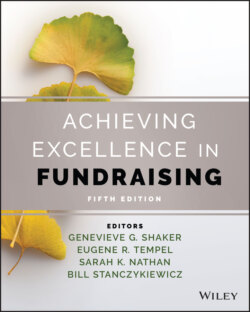Читать книгу Achieving Excellence in Fundraising - Группа авторов - Страница 65
Definition of a Gift and Donor Restrictions
ОглавлениеState and federal courts have required both a subjective and objective test to determine the existence of a charitable gift, especially for qualification of a tax benefit. The subjective test requires that the donor's intent must be “disinterested generosity” to support a charitable mission. The objective test requires that the gift be received by a qualified charitable organization and does not include any financial benefit or quid pro quo returned to the donor in exchange for the gift. In addition, a donor cannot impose conditions on a gift that inappropriately restrict the duty of care owed by the board of directors over the use of the gift (e.g., sale or investment of donated assets).
Donors may include specific restrictions on the use of a gift by an organization such as a designation for endowment and/or for a particular program or purpose. Charities are expected to honor donor intent as a legal and ethical best practice unless the purpose becomes impossible, impractical, or illegal. A helpful resource for honoring donor intent and restrictions is Protecting Your Legacy: A Wise Giver's Guide to Honoring and Preserving Donor Intent, provided by The Philanthropy Roundtable. Court cases as well as statutory law known as the Uniform Prudent Management of Institutional Funds Act (UPMIFA) includes procedures for modifying the purpose or management aspects of a gift if impossible, impractical, and so on.
